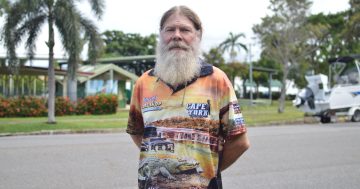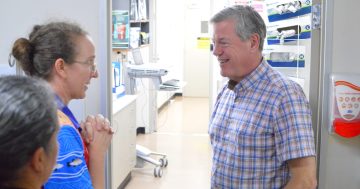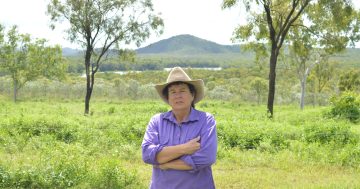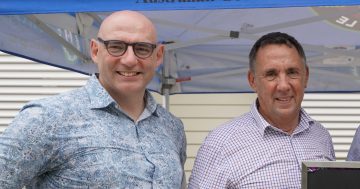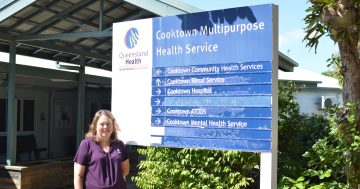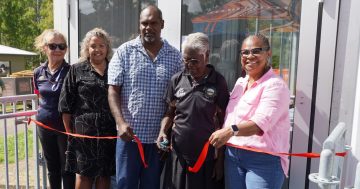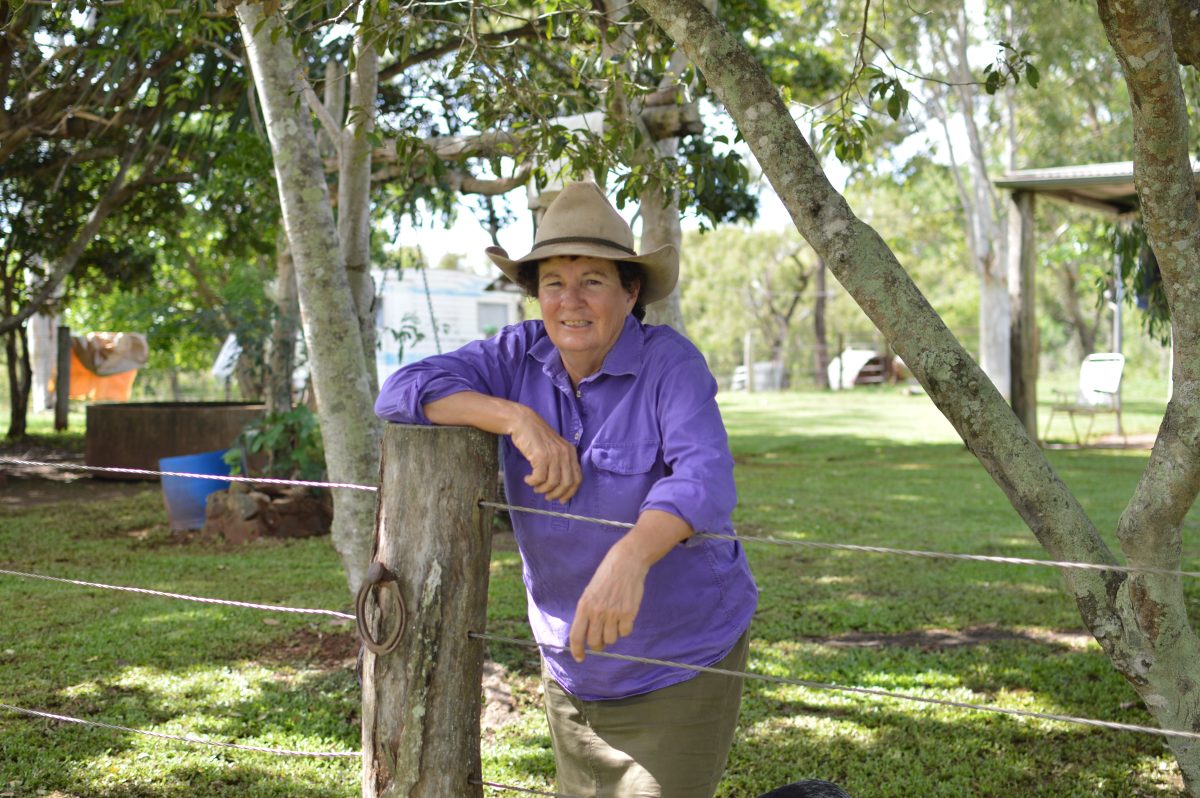
Lakeland Progress Association chair Joy Marriott says the group’s recent meeting with representatives from Torres and Cape Hospital and Health Service regarding the establishment of a clinic in the town was positive, but failed to explain what triggers the government needed to get the ball rolling. Photo: Lyndon Keane.
Frustrated Lakeland residents have used a meeting with health officials to push their case for the urgent need to establish a clinic in the town.
Lakeland Progress Association (LPA) members sat down with representatives from Torres and Cape Hospital and Health Service (TCHHS) last week to discuss the situation the community is dealing with, including people having to travel almost 80 kilometres to Cooktown for medical assistance, whether it be an emergency or simply having prescriptions renewed.
The call to open a clinic in Lakeland is not new and LPA chair Joy Marriott said the status quo had major health and economic implications for the community.
“We’re a farming community and there are a lot of people using knives all day in sheds, so cuts are going to happen,” she explained.
“Like one of the growers that was there said, often, they have to take someone to Cooktown or to Laura, if there’s someone there at Laura, to get stitched – that’s basically taking up a whole day for something that could have been fixed in a few hours if we had a clinic; but it’s not even that – people are wasting whole days travelling just to get referrals and prescriptions renewed.
“During the wet, we can get cut off from further south or even Cooktown, so a clinic’s something we need.”
Ms Marriott urged TCHHS to provide more detail about its assessment process for determining the need for a clinic to be established, adding the meeting had shone little light on the topic.
“We didn’t really get a definition of what the trigger would be, and even if there was a trigger for a new clinic, that would be five years away, so we want to know what the answer is in the interim,” she said.
“They (TCHHS) said there was a five-step process and they are only on the second step, but they wouldn’t tell us what those steps were.
“Is one of the triggers population?”
Census data from 2021 suggests 333 people call Lakeland home, but anecdotal evidence supports the long-held local argument the population is closer to 1,000 when international agriculture workers are taken into account.
Ms Marriott said the census data also failed to take into account the health needs of the estimated 100,000 tourists who pass through the gateway to Cape York each year.
“There’s an obvious need for a clinic because we have all the workers from overseas,” she said.
“They aren’t counted in the census, but they live here and they work here, and they have their own health insurance, and then you’ve got the tourists as well.
“Obviously, [TCHHS] would have the data for the people going outside Lakeland for treatment but, for some reason, it’s just like a big black hole.”
TCHHS executive general manager south Michael Catt said he believed the Lakeland meeting had been productive but would not identify what was needed for a permanent clinic to get given the green light.
“I was delighted to attend Lakeland in person and chair a meeting with members of the Lakeland Progress Association and key stakeholders earlier this month regarding health service delivery to the community,” he said.
“We were able to provide an update to the progress association in that we will be conducting a strategic needs assessment, which will include community consultation; the next steps for Lakeland will be based on that assessment.
“We have also committed to reviewing our current short-term service delivery opportunities alongside our health partners.”
Cook Shire Council has been a strong advocate for the establishment of a clinic in Lakeland and Mayor Robyn Holmes described the meeting as “very encouraging”, adding she believed the organisation would be prepared to come to the table to provide the infrastructure support needed to help it come to fruition.
“If [TCHHS] are committed to providing a service for Lakeland, I’m confident that council will support any minor upgrades or modifications required at the Lakeland Hall,” she said.
“We recognise the critical need for healthcare in the area, and I believe council would be very open to investigating what is needed to make a clinic a reality.
“Together with [TCHHS] and the community, we are eager to ensure the best possible outcome for the growing Lakeland community.”
Mayor Holmes said while a part-time clinic would be a step in the right direction, she believed there was a business case to support the development of a full-time health operation in Lakeland.
“While a part-time clinic would certainly be a welcome first step, I strongly believe there is a compelling case for a permanent, full-time clinic in Lakeland,” she said.
“The town is experiencing significant growth with expanding industries like agriculture, and more workers and tourists passing through each year; additionally, as the community continues to grow, so too does the need for accessible healthcare.
“A permanent facility would not only serve local residents, but also address the demands of the increasing number of visitors and support future development in the region.”
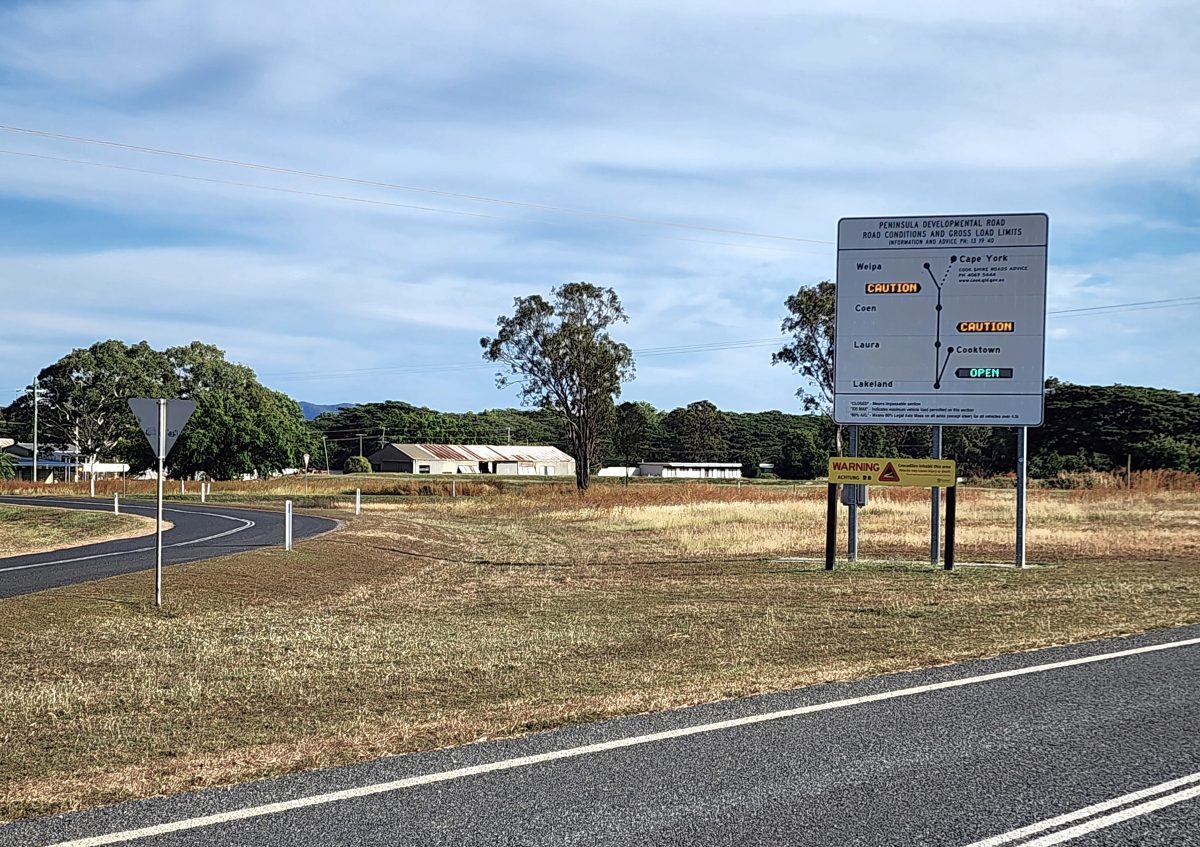
Despite being the gateway to Cape York, Lakeland residents and visitors must still travel up to an hour for medical treatment due to the absence of a health clinic in the community. Photo: Cape York Weekly.





